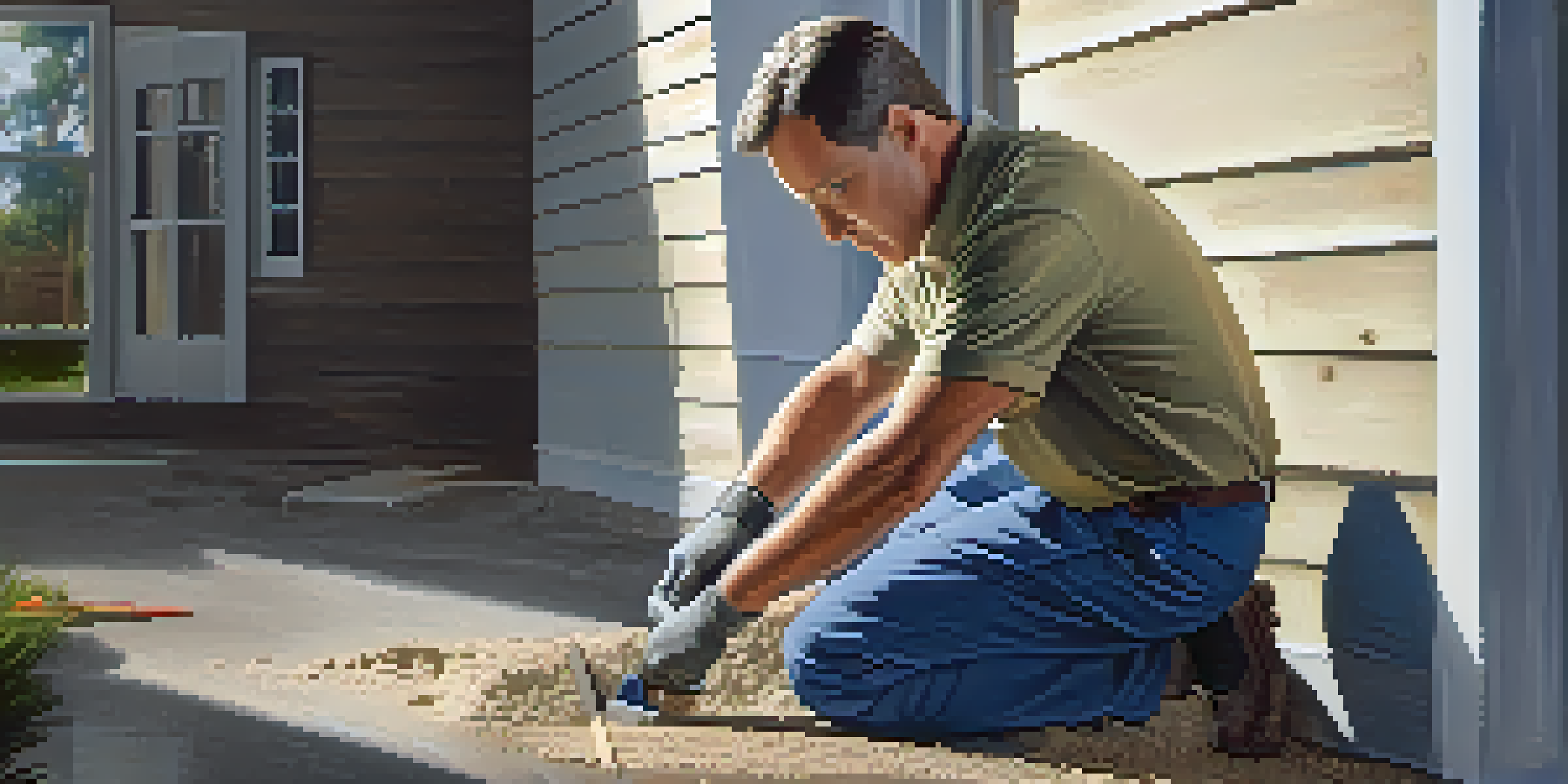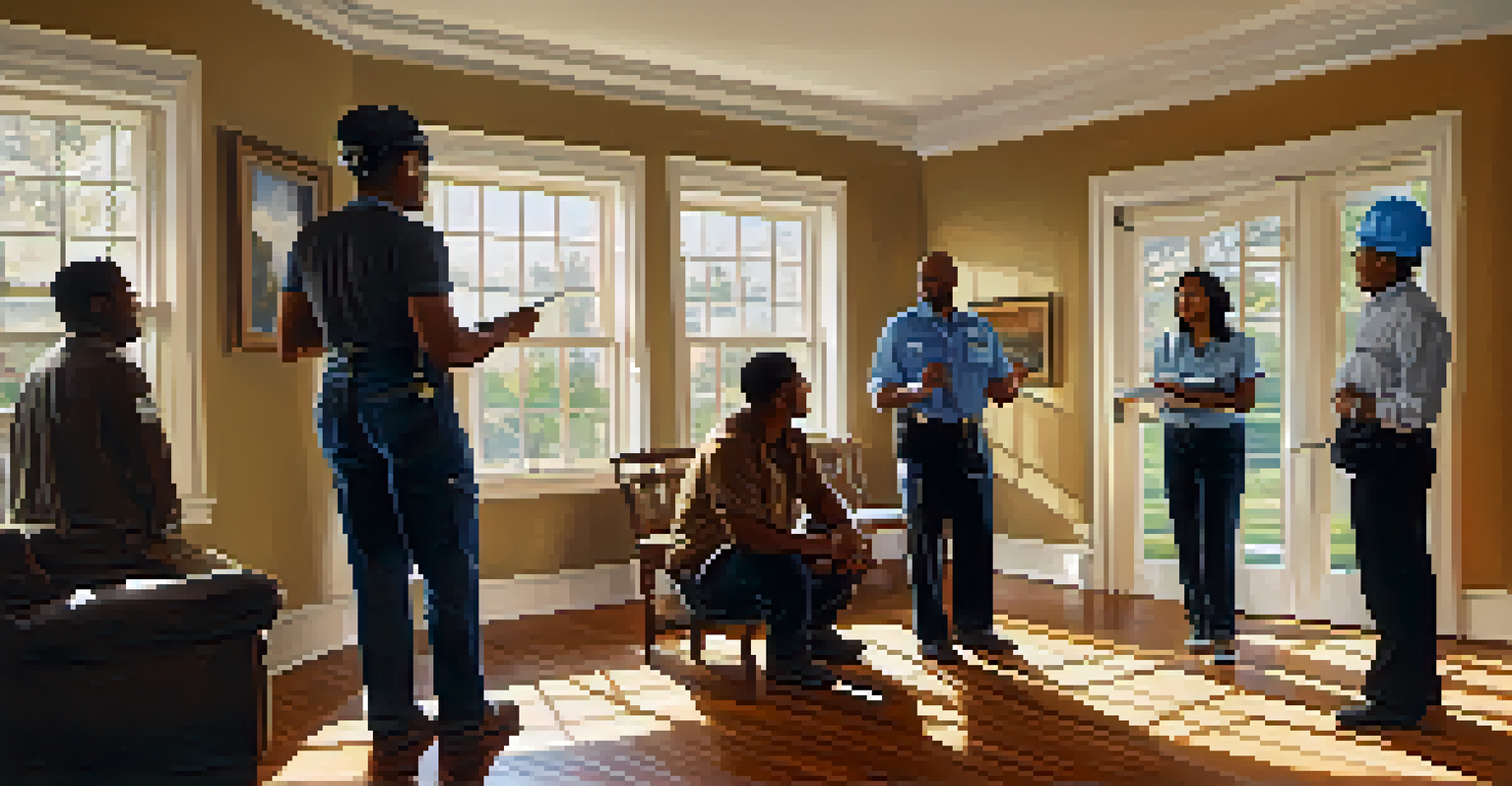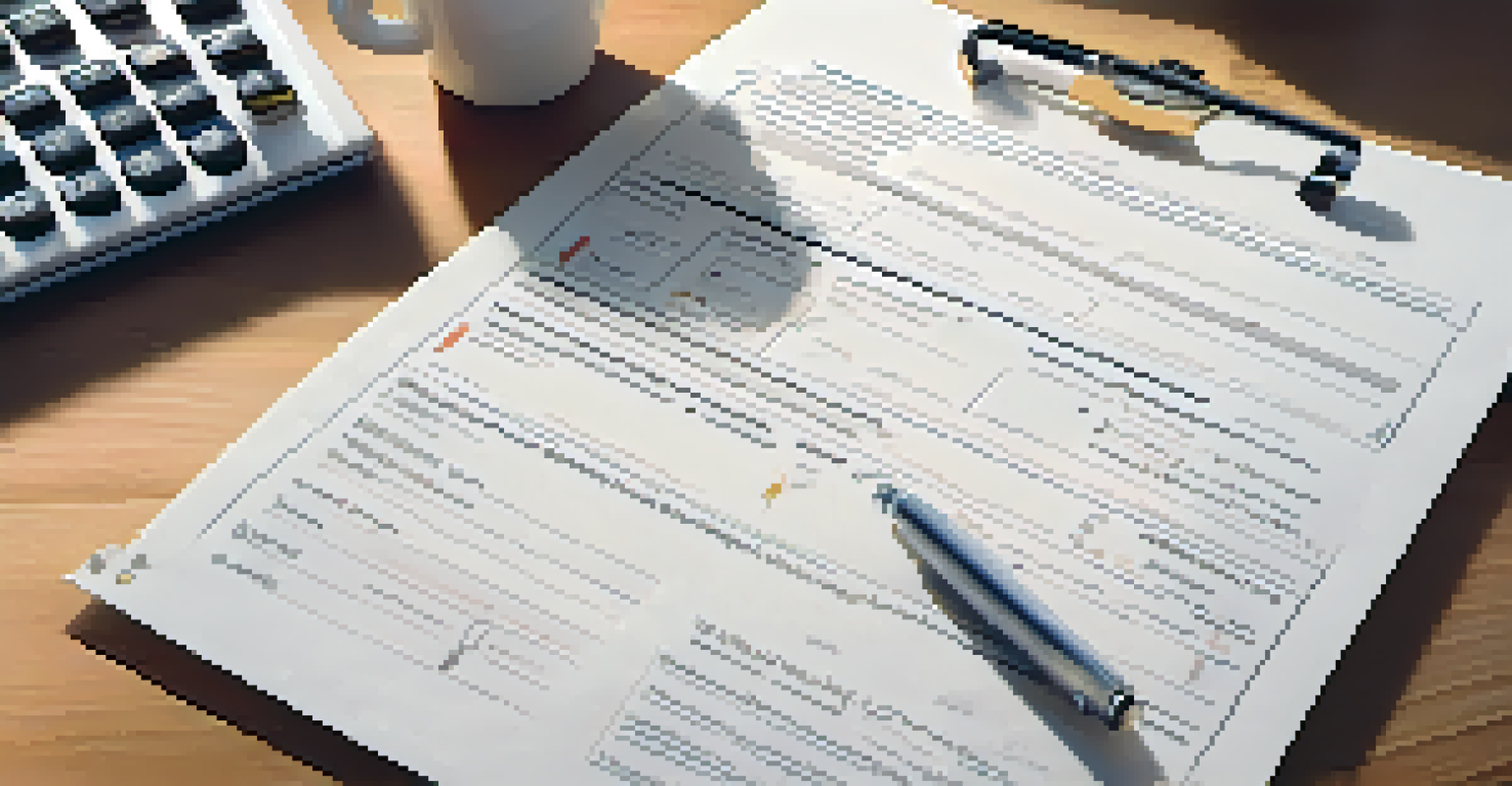How to Communicate with Your Home Inspector Effectively

Understand the Role of Your Home Inspector
Before diving into communication, it's essential to understand what your home inspector's role entails. They are trained professionals who evaluate the condition of a home, identifying potential issues that could affect safety and value. Knowing this helps you appreciate their expertise and approach your discussions with respect and curiosity.
An investment in knowledge pays the best interest.
Your inspector will look at various systems in the home, from the roof to the foundation, and they'll be able to explain their findings clearly. This background gives you a solid foundation for asking informed questions later. Think of them as your guide through the often complex landscape of home conditions.
By grasping the inspector's role, you can foster a more productive dialogue. This understanding sets the stage for effective communication, ensuring you get the most out of your inspection.
Prepare Your Questions Ahead of Time
A key part of effective communication is preparation. Before the inspection, jot down any questions or concerns you have about the property. This could include inquiries about the age of systems like HVAC or plumbing, or worries about specific areas you suspect might need attention.

Having your questions at hand allows you to maximize the time you have with your inspector. It shows that you are engaged and serious about understanding the home's condition. Moreover, it helps your inspector address your specific concerns without missing important details.
Understand Your Inspector's Role
Knowing what your home inspector does helps facilitate effective communication and enhances your understanding of the inspection process.
The more prepared you are, the more insightful the answers you’ll receive. This proactive approach can lead to a more thorough inspection and a clearer understanding of your potential investment.
Be Open and Honest About Your Concerns
When communicating with your home inspector, honesty is vital. If you have particular worries or areas of interest, share them openly. This allows the inspector to focus on what matters most to you, ensuring nothing is overlooked.
The single biggest problem in communication is the illusion that it has taken place.
For example, if you have concerns about potential water damage in the basement, mention this upfront. Your inspector can pay extra attention to that area and provide a more detailed analysis. This collaborative approach can uncover issues that might otherwise go unnoticed.
Being open about your concerns not only improves the inspection process but also builds rapport with your inspector. A trusting relationship can lead to better insights and a more comprehensive understanding of the home.
Follow Up with Clarifying Questions
During the inspection, don’t hesitate to ask clarifying questions as you go along. If your inspector mentions something you don’t understand, ask for clarification right away. This ensures you grasp the nuances of their findings in real-time.
For instance, if they point out a potential electrical issue, ask them to explain why it's a concern and what steps you might need to take next. The goal is to leave the inspection with a clear understanding of its implications, not just a list of problems.
Prepare Questions for the Inspection
Having questions ready ensures you maximize the inspector's time and address your specific concerns about the property.
Following up with questions shows your engagement and commitment to understanding the home. It also signals to your inspector that you value their expertise, fostering a more collaborative atmosphere.
Take Notes During the Inspection
Taking notes during the inspection can be incredibly beneficial. As your inspector highlights various issues, jot down key points and remarks. This practice helps you retain information and provides a reference for future discussions or decisions.
Your notes can also include specific recommendations the inspector might offer, like maintenance tips or further evaluations. This way, you won't have to rely solely on memory when considering your next steps.
Moreover, having a written account helps you compare findings later if you decide to engage other professionals for repairs or further inspections. It’s a simple yet effective way to stay organized and informed.
Request a Detailed Inspection Report
After the inspection, request a detailed written report from your inspector. This document should summarize their findings, including descriptions of issues and recommendations for repairs or maintenance. A comprehensive report serves as a valuable resource for your records.
Having this report allows you to revisit the inspector's insights and refer back to them as needed. It's also beneficial if you plan to negotiate repairs or pricing with the seller based on the findings.
Engage After the Inspection
Maintaining communication with your inspector after the inspection provides ongoing support and clarification as you make decisions.
A detailed inspection report is not just a formality; it's your roadmap for understanding the condition of the home. It helps ensure you’re fully informed as you make decisions moving forward.
Stay Engaged After the Inspection
Communication shouldn’t end once the inspection is over. Stay engaged with your inspector by reaching out if you have additional questions after reviewing the report. They can provide further clarification and advice as you navigate your next steps.
For example, if you decide to move forward with repairs, consulting your inspector on the best approach can be invaluable. They may have insights on reputable contractors or methods that could save you time and money.

By maintaining this line of communication, you ensure that you’re equipped with the knowledge and support you need throughout the home-buying process. It’s all about building a lasting relationship that benefits you in the long run.